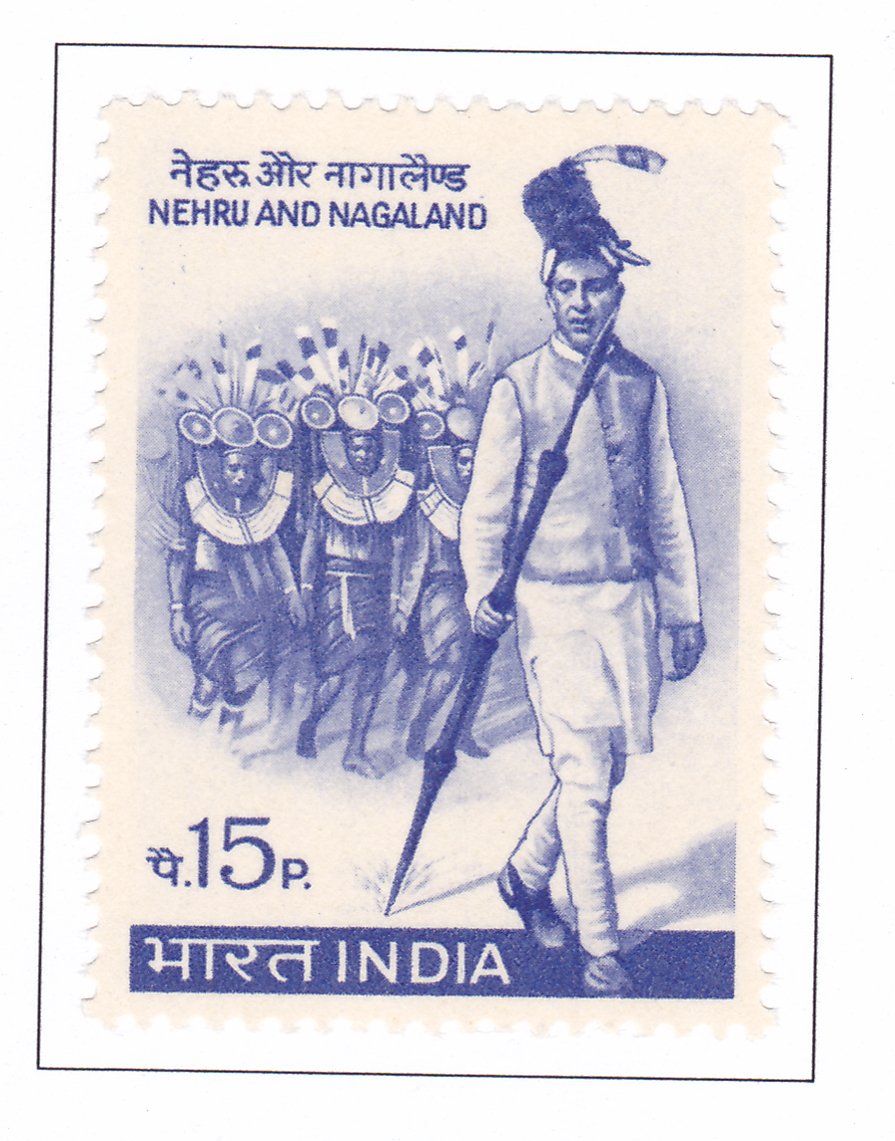Nehru and Nagaland

Technical Data
| Date of Issue | December 12, 1967 |
|---|---|
| Denomination | 15 nP |
| Quantity | 2,000,000 |
| Perforation | comb 13 x 13½ |
| Printer | Security Printing Press, Nashik |
| Watermark | No Watermark |
| Colors | Ultramarine |
| Catalog Codes |
Michel IN 440 Stamp Number IN 458 Yvert et Tellier IN 241 Stanley Gibbons IN 556 |
| Themes | Anniversaries and Jubilees | Army | Famous people | Heads of State |
The creation of the state of Nagaland on December 1, 1963, marked a significant milestone in India’s journey towards ensuring autonomy and freedom for tribal areas, in line with the vision articulated by Pandit Jawaharlal Nehru. His profound interest in tribal communities and his affection for them underscored his commitment to their welfare and development.
Nagaland, with its administrative headquarters at Kohima, is characterized by its long, narrow strip of hills running parallel to the Brahmaputra’s south bank. The rugged terrain is home to the Nagas, a resilient and self-reliant people with a vibrant culture, marked by their love for song and dance.
As Nagaland commemorates the fourth anniversary of its inception on December 1, 1967, the Posts and Telegraphs Department pays homage to Pandit Nehru’s vision and his close association with the Nagas. The issuance of a special postage stamp on this occasion, titled “Nehru and Nagaland,” underscores the importance of emotional integration in India, a principle cherished by Pandit Nehru. This stamp serves as a tribute to the synthesis of races and cultures that characterizes India’s rich and diverse civilization, united by common ideals and aspirations.
